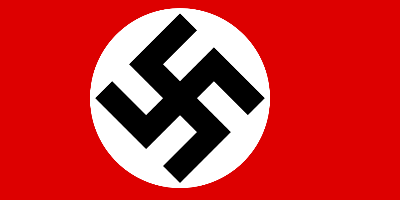13 magg 1941 anni - Decree on the Jurisdiction of Martial Law and on Special Measures of the Troops (The Barbarossa Decree)
Descrizione:
To prepare for Operation Barbarossa against the Soviet Union in World War II, German OKW Chief Wilhelm Keitel signed a document known as the Barbarossa Decree on May 13, 1941.Regarding the Soviet civilians and Soviet partisans, the German military discussed this in the text. Under this order, German soldiers were to "defend themselves against every threat from the enemy civilian population without mercy."
The Barbarossa Decree also mentioned that all attacks "by enemy civilians on the Wehrmacht, its members, and retinue are to be repelled on the spot by the most extreme measures up to the destruction of the attacker."
The order specified:
"The partisans are to be ruthlessly eliminated in battle or during attempts to escape", and all attacks by the civilian population against Wehrmacht soldiers are to be "suppressed by the army on the spot by using extreme measures, till [the] annihilation of the attackers.
Every officer in the German occupation in the East of the future will be entitled to perform execution(s) without trial, without any formalities, on any person suspected of having a hostile attitude towards the Germans" (likewise, with regards to prisoners of war).
"If you have not managed to identify and punish the perpetrators of anti-German acts, you are allowed to apply the principle of collective responsibility 'Collective measures' against residents of the area where the attack occurred can then be applied after approval by the battalion commander or higher level of command".
German soldiers who commit crimes against humanity, the USSR and prisoners of war are to be exempted from criminal responsibility, even if they commit acts punishable according to German law.
According to the "Guidelines for the Conduct of the Troops in Russia" published by the OKW on May 19, 1941, "Judeo-Bolshevism" was the greatest threat to the German country, and "It is against this destructive ideology and its adherents that Germany is waging war".
The guidelines continued to demand "ruthless and vigorous measures against Bolshevik inciters, guerrillas, saboteurs, Jews, and the complete elimination of all active and passive resistance."
This order was in line with the needs of the Wehrmacht command, which was eager to secure logistical facilities and routes behind the front lines for the Eastern Front divisions. Field Marshal Walther von Brauchitsch, the head of the German Army High Command (Oberkommando des Heeres - OKH), modified the "Barbarossa Jurisdiction's" premises somewhat on May 24, 1941.
His instructions were to use the jurisdiction only in cases where doing so shouldn't jeopardize the army's discipline. Heinz Guderian and other Wehrmacht generals had no intention to mitigate the records of an order's authority or otherwise go against Hitler's wishes. Without altering the order's extermination aims. His command had intended solely to prevent individual excesses that may harm discipline among the ranks of the Wehrmacht.
Aggiunto al nastro di tempo:
Data:
13 magg 1941 anni
Adesso
~ 84 years ago
